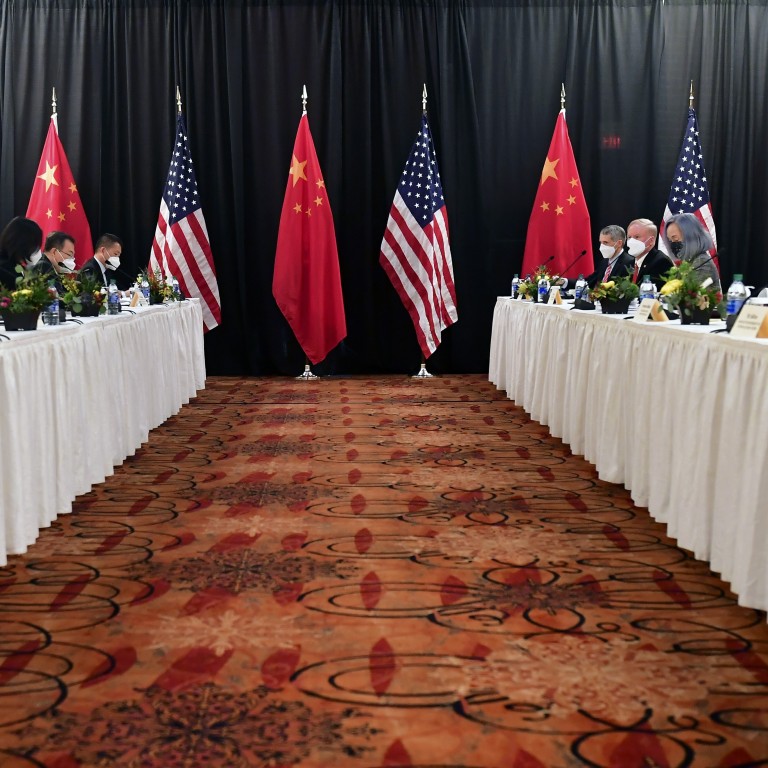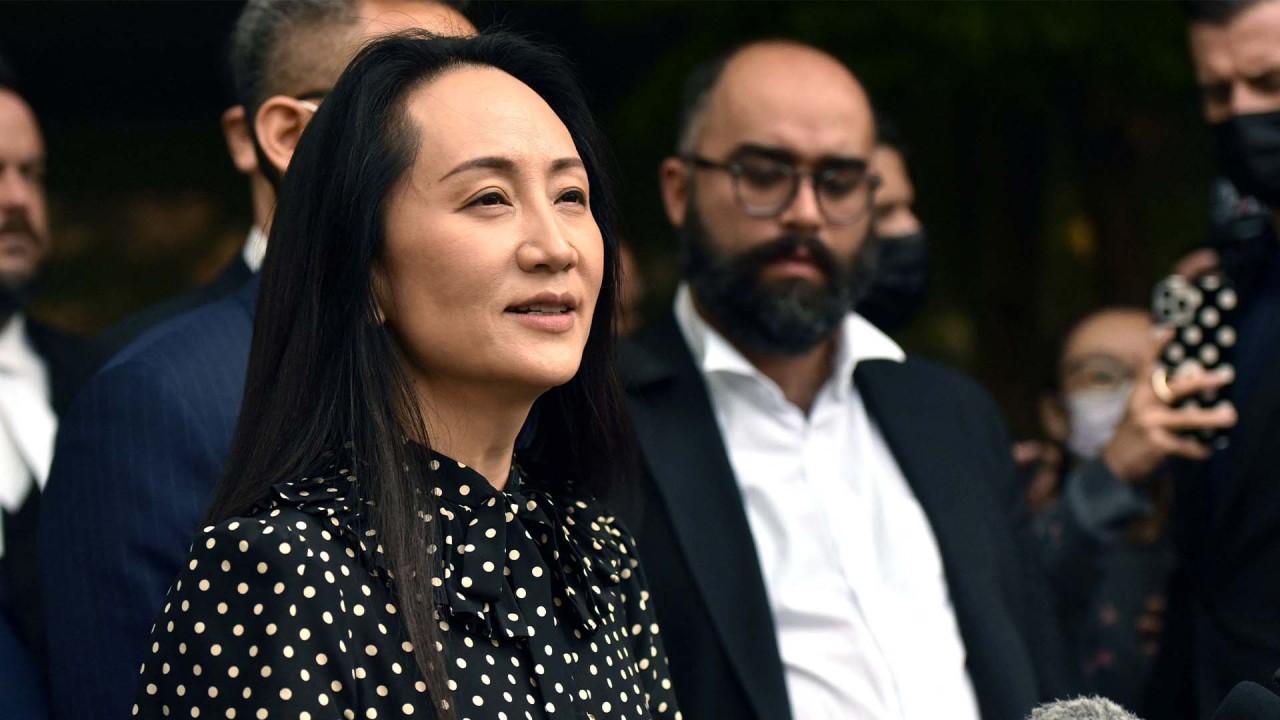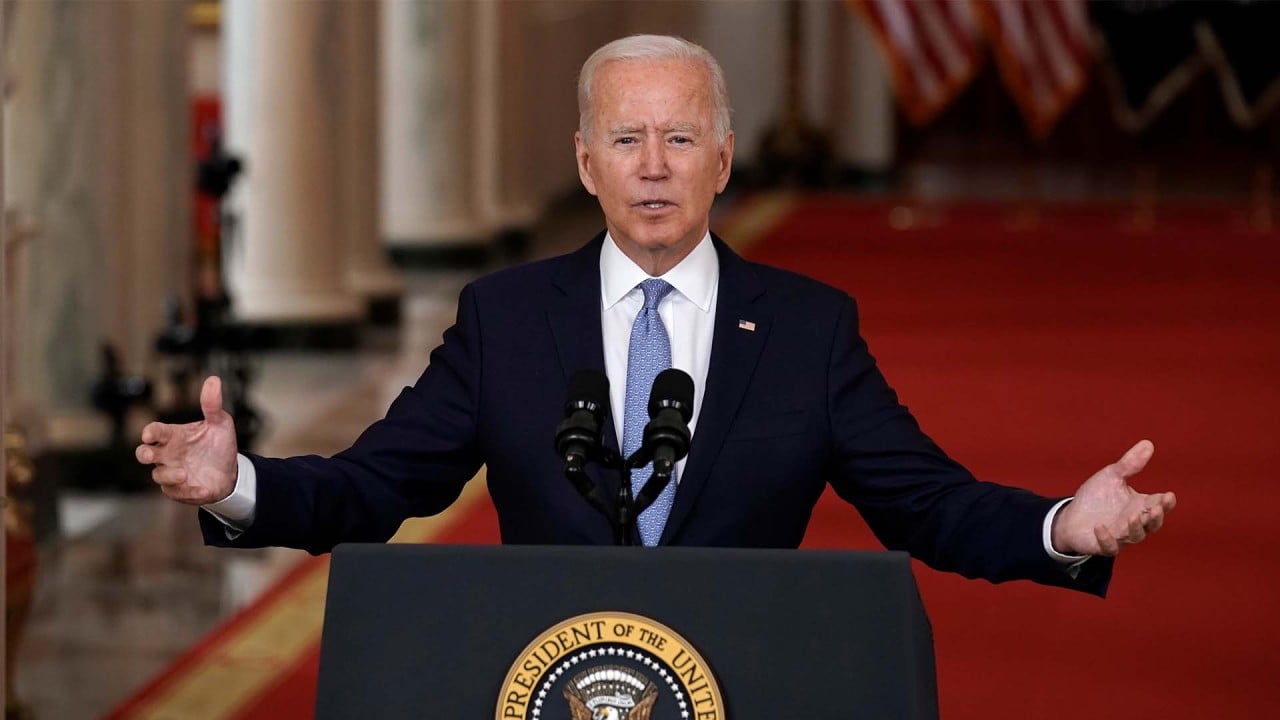
Tempers in check as China and US foreign policy advisers meet in Zurich
- Yang Jiechi and Jake Sullivan head to Switzerland to find ways to manage national rivalries
- But a Xi-Biden summit is unlikely soon with no sign of change in White House’s hard line on Beijing, observers say
It also comes more than six months after Yang’s last meeting with Sullivan, in which Yang lashed out at the US, saying it was not entitled to talk to China from a “position of strength”.

01:03
Xi asked US to ‘properly handle’ Huawei’s Meng Wanzhou case in phone call with Biden: China
White House National Security Council spokeswoman Emily Horne said the Biden administration continued “to seek to responsibly manage the competition” between the two countries.
And Chinese officials said the meeting was intended to rebuild communications and explore the possibility of a Xi-Biden summit.
However, the prospect of that meeting taking place this month has dimmed with Xi not expected to travel to Rome for the Group of 20 summit.
US to ask for public comment on reinstating tariff exclusions on Chinese goods
Pang Zhongying, an international relations professor at Ocean University of China, said the conditions had not developed enough for Xi and Biden to meet.
“China hopes there will be some breakthrough in China-US relations,” Pang said. “But now it seems the Biden administration has not taken steps to fundamentally improve China-US ties.”
Pang said China would assess whether the remarks made by US trade representative Katherine Tai – who said the US was seeking to “recouple” with China on trade – represented a broader American policy direction.
In the meantime, Washington has accused Beijing of undermining regional peace and stability by sending dozens of fighter planes towards Taiwan, including a record 56 on Monday.
US-China trade war: Washington set to exempt some products from tariffs
Huang Jing, dean of the Institute of International and Regional Studies at Beijing Language and Culture University, said it was good to see that both sides were talking about the need for “guardrails” to manage their differences but a summit was unlikely to be any time soon.
In Beijing, the Communist Party will hold its annual gathering next month and is preparing for its five-yearly national congress next year, making it difficult for Beijing to arrange a summit.
Huang said that at the meeting in Zurich, China might want to make sure that the US would not spearhead a boycott of the Beijing Winter Olympics next year and try to strengthen communications over big issues like Taiwan.

04:00
Biden calls US evacuation an ‘extraordinary success’ in first speech since end of Kabul withdrawal
Zhu Feng, director of the Institute of International Studies at Nanjing University, said Yang would underline three goals that China presented to US deputy secretary of state Wendy Sherman during her visit to Tianjin in July.
“A summit is still likely, which will help ease tensions and find solutions to the many complex questions in bilateral ties. It’s not that difficult to arrange a summit for them to meet, but the crux is what they have to talk about,” he said.
Additional reporting by Shi Jiangtao and Teddy Ng

